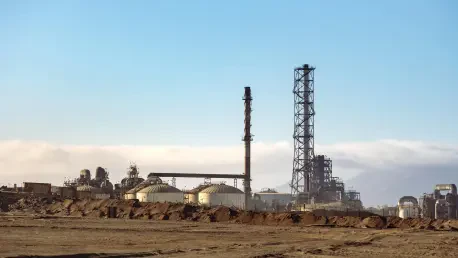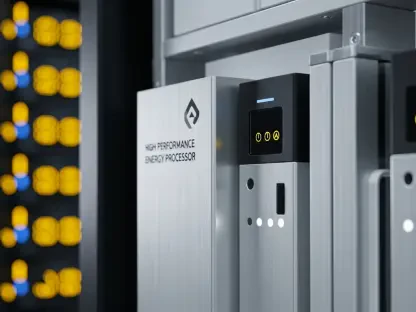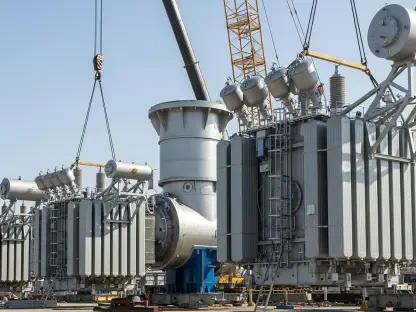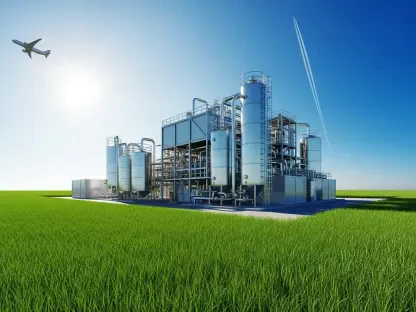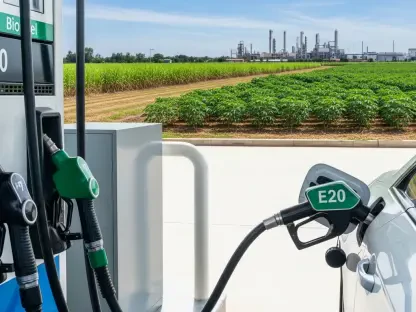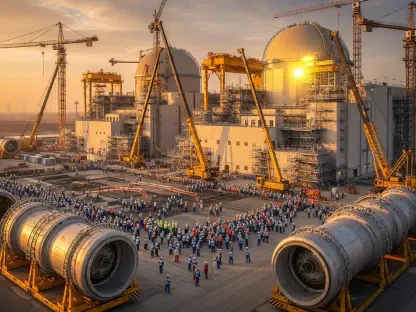In a world where the aviation industry grapples with its significant contribution to global carbon emissions, a groundbreaking development has emerged from a small but ambitious island nation. Singapore, long recognized as a hub for innovation and sustainability, has taken a bold step forward with the announcement of a new facility dedicated to producing sustainable aviation fuel (SAF). Located on Pulau Bukom, this project promises to reshape the landscape of aviation by offering a greener alternative to traditional jet fuel. Dubbed Project Beacon, this initiative is a collaboration between climate technology start-up Aether Fuels and Aster, a leader in chemical and energy solutions. With the aviation sector accounting for roughly 2.5% of global carbon emissions, the urgency to decarbonize has never been clearer, and this facility represents a tangible stride toward meeting that challenge. As Singapore positions itself at the forefront of sustainable industrial transformation, the implications of this venture extend far beyond its shores.
Pioneering Green Aviation Technology
Innovative Production Methods
The heart of Project Beacon lies in its cutting-edge approach to producing sustainable aviation fuel, setting it apart from conventional methods. Aether Fuels has developed a technology that transforms industrial waste gases and biomethane into SAF, yielding impressive results. According to company insights, this process produces 20% more fuel while requiring only half the equipment investment compared to traditional methods that rely on waste oils. Furthermore, it achieves a remarkable reduction of over 70% in greenhouse gas emissions when measured against standard jet fuel. This efficiency not only enhances the scalability of SAF but also addresses one of the aviation industry’s most pressing needs: a viable, low-carbon fuel alternative. Scheduled to begin construction in late 2026, the initial phase of the Pulau Bukom facility aims to produce up to 50 barrels per day, equivalent to 2,000 tonnes annually, marking a significant first step in this transformative journey.
Scaling Up for Greater Impact
Beyond the initial phase, ambitions for Project Beacon are set even higher with plans for a second, larger facility on the horizon. This expanded operation targets a production capacity of 1,000 barrels per day, translating to an impressive 330,000 tonnes of SAF each year. Such a scale-up underscores the project’s potential to make a substantial dent in aviation emissions, especially as demand for greener fuel options continues to grow. The facility, situated at Aster’s refining hub on Pulau Bukom, leverages existing infrastructure to streamline development while ensuring operational efficiency. Once fully operational in 2028, the plant will employ a dedicated team of 24 staff members to manage production. This expansion signals not just a commitment to innovation but also a strategic vision to position Singapore as a key player in the global SAF market, paving the way for other nations to follow suit in adopting sustainable aviation solutions.
Addressing Challenges and Building Partnerships
Tackling the Cost Barrier
Despite the environmental promise of sustainable aviation fuel, a significant hurdle remains in its widespread adoption: the steep cost compared to conventional jet fuel. Currently, SAF prices hover between US$2,700 and US$2,800 per tonne, nearly four times the cost of traditional fuel, which ranges from US$700 to US$800 per tonne. Aether Fuels is actively working to narrow this gap, though external factors such as the price of hydrogen and renewable energy—critical components in SAF production—continue to influence overall expenses. Singapore is taking proactive measures to ease this burden, with plans to introduce a levy on departing flights starting in late 2026 to fund SAF purchases. Additionally, the nation aims to ensure that 1% of jet fuel at Changi and Seletar airports is sustainable by that same year, reflecting a clear policy push to integrate greener fuels into mainstream aviation and mitigate the financial challenges.
Industry Collaboration and Adoption
The success of Project Beacon hinges not only on technological innovation but also on strategic partnerships with key industry players. Major airlines have already expressed interest in adopting SAF from this facility, signaling a growing consensus on the need for sustainable practices. Singapore Airlines and its subsidiary Scoot have signed a memorandum of understanding for a five-year supply agreement once commercial production begins. Similarly, a U.S.-based low-cost carrier has entered a non-binding agreement to potentially purchase SAF, highlighting international interest in this initiative. These collaborations reflect a broader trend within the aviation sector, where regulatory pressures and environmental imperatives are driving airlines to align with fuel producers. Such partnerships are crucial for scaling up SAF adoption, as they ensure a steady demand while providing producers with the confidence to invest in expanded capacity and innovation.
Charting the Path Forward
Reflecting on a Milestone Achievement
Looking back, the launch of Project Beacon on Pulau Bukom marked a defining moment in the quest to decarbonize aviation. The collaboration between Aether Fuels and Aster demonstrated how innovation, paired with strategic vision, could tackle one of the industry’s most persistent challenges. Supported by Singapore’s commitment to greening its energy and chemicals sector—which accounts for a quarter of national manufacturing output—this initiative showcased the power of aligning technology with policy. The involvement of major airlines and the planned introduction of supportive levies further underscored the collective resolve to embrace sustainable aviation fuel. As construction progressed toward its 2026 start date, the project stood as a testament to what could be achieved when industry and government worked hand in hand to prioritize environmental stewardship over short-term gains.
Envisioning Future Solutions
Moving forward, the focus must shift to actionable strategies that build on the foundation laid by this pioneering facility. Accelerating efforts to reduce SAF production costs through technological advancements and economies of scale should be a priority for stakeholders. Governments and industry leaders can further support this transition by expanding incentives and subsidies to offset price disparities, ensuring broader accessibility. Additionally, fostering global cooperation will be essential to standardize SAF adoption and create a unified framework for emissions reduction. Singapore’s role as a leader in this space offers a blueprint for other nations, encouraging investment in sustainable infrastructure. As Project Beacon evolves, it serves as a reminder that sustained commitment and innovative thinking are key to transforming aviation into a greener, more responsible industry for generations to come.
